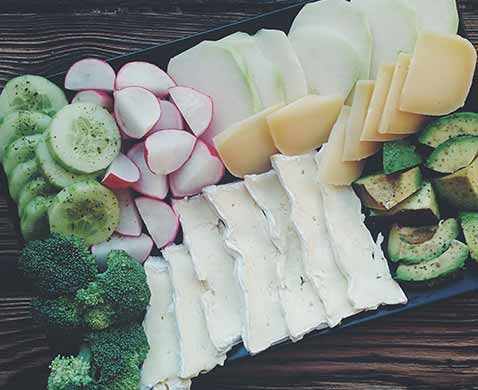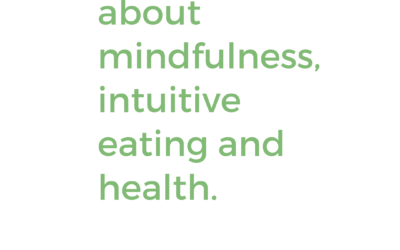Your doctor or nutritionist may have told you that you are sensitive to fructose. But, what does that mean? Fructose malabsorption is typically more common in those with chronic intestinal disorders such as Crohn’s disease, IBS and functional dysbiosis, but it can affect up to 36% of the general population according to some research studies. If you have mysterious gut issues that you cannot seem to sort out, fructose could be a culprit. For this reason, it’s important to understand what foods contain fructose and how to avoid them so you can feel better quickly.
What is fructose and where is it found?
Fructose is a naturally occurring simple sugar found in fruit, vegetables, and honey. It is also very concentrated in high-fructose corn syrup (HFCS). Free fructose is common in the western diet due to the increasing popularity of high-fructose corn syrup by food manufacturers due to its lower price point and high sweetness factor.
Everyone malabsorbs fructose to a certain degree. Some of us just have a lower tolerance than others, resulting in symptoms that are uncomfortable and seemingly mysterious.
What are the signs and symptoms of fructose Malabsorption?
The most common signs are excess flatulence, abdominal discomfort, bloating, belching and altered bowel habits. Nausea can also occur within minutes of intake. Some patients also complain of fatigue, headache, diminished concentration, muscle or joint pain, and depression as common side effects of excessive fructose intake.
Managing Fructose Intake
Management of fructose intolerance usually requires lifelong dietary changes. Your body will never adapt to fructose if you have an intolerance. Fortunately, ingestion of fructose does not cause damage to intestinal cells and there is no evidence it will lead to dysbiosis or overgrowth of pathogenic bacteria in the gut. In other words, if you accidentally ingest a large amount of fructose, you can rest assured you aren’t doing harm to your body despite the uncomfortable symptoms that may occur.
The chart below will give you ideas on which foods contain fructose so you can better plan your intake.
Fructose Containing Foods
| Unfavorable Foods/ Foods to Avoid(contains excess of fructose or large load of fructose) | Fruit | Apple, cherry, custard apple, grape (red or green), guava, honeydew melon, loquat, lychee, mango, mulberry, nashi, papaya, pear, persimmon, pomegranate, quince, cantaloupe melon, star fruit, watermelon, wax jambu |
| Dried Fruit | Apple, apricot, currant, date, fig, pear, prune, raisin, sultana, dried fruit leathers/bars | |
| Sweeteners | Agave syrup, corn syrup solids, fruit juice, fruit juice concentrate, high-fructose corn syrup, honey (depending on source) | |
| Drinks | All fruit juice, fortified wines, soft drinks | |
| Sauces | BBQ sauce, chutney, plum sauce, relish, sweet and sour sauce, tomato sauce, tomato paste | |
| Vegetables | Beetroot, spring onion, sugar snap peas | |
| Other | Excess sucrose-sweetened confectionary, sorbitol and other artificial sweeteners | |
| Questionable Foods(fructose content okay, but contains sugar alcohols) | Fruit | Apricot, nectarine, peach, plum*limit to 1 serving per sitting |
| Sweeteners | Sorbitol, isomalt, xylitol, lactitol, maltitol, mannitol, erythritol | |
| Other | “sugar-free” confectionary, some medications | |
| Vegetables | Asparagus, garlic (small doses usually OK), leek, onion, shallot, spring onion, zucchini, Brussels sprout, cabbage (green, red, savoy, or white), bell pepper (green or red), carrot, cauliflower, celeriac root, chives, cucumber (all types), eggplant, garlic, kohlrabi, leek, lettuce (cos or mignonette), onion, parsnip, potato (some varieties), pumpkin, radish, shallot, sweet potato, sweet corn, tomato (fresh and canned), turnip | |
| Grains | Wheat | |
| Other | Fructooligosaccharides (FOS) supplements, galactooligosaccharide (GOS), larch arabinogalactans, and inulin supplements | |
| Intestine Friendly(will cause few symptoms, if any) | Fruit | Avocado, babaco, banana, blackberry, blueberry, coconut (grated and dried), cranberry, fig (fresh), grapefruit, jackfruit, kiwifruit, kumquat, lemon, lime, orange (Valencia is higher in fructose), passionfruit, pepino, rhubarb, tamarillo, tangelo, raspberry*, lemon, lime, strawberries, pineapple, blackberries, mandarin, tangelo*be careful with quantity |
| Vegetables | Alfalfa sprout, broad bean, globe artichoke, green been, Jerusalem artichoke, bok choy, broccoli, cassava, celery, Chinese cabbage, spinach, lettuce (iceberg), mushroom, peas, potato (most varieties), butternut squash, silverbeet, taro, watercress. | |
| Sweeteners | Sucrose (table sugar) in moderation, glucose, maple syrup, molasses, glucose-sweetened confectionary (homemade desserts using table sugar) | |
| Meats/Eggs | All – contains no fructose | |
| Fats | All – contains no fructose | |
| Dairy | All – contains no fructose | |
| Beans/Nuts | All – contains no fructose |
General Recommendations
- Based your diet on the “Intestine Friendly” list with moderate enjoyment of the “Questionable” foods and very few, if any of the “Unfavorable” foods to start. Gradually test the unfavorable foods to determine your tolerance level.
- Keep a journal to help you judge how you feel after eating fructose-containing foods. This tool may help you learn more about your individual tolerance level.
- Keep in mind that tolerance may depend on the amount you eat at one time. You may be able to enjoy small servings of unfavorable foods or do poorly with large quantities of favorable foods.
- Limit concentrated sources of fructose such as dried fruit and fruit juices or eating large amounts of any fruit.
- Eliminate products with ingredients that list fructose, crystalline fructose (not HFCS), and honey on the label.
- Limit drinks with HFCS; if used, drink less than the recommended serving size, e.g., less than 12 oz of soda (may help to drink with a meal).
- Keep in mind that the amount of fructose found in 2 apples, 2 oz of honey and 1 can of soda is the same! Different foods contain different amounts of fructose per gram of weight.
- Cooked vegetables may be better tolerated as cooking causes the loss of free sugars like fructose.
- Limit fruit to 1-2 servings/day (serving size is ½ cup).
- Avoid all sugar alcohols which include sorbitol, lactitol, maltitol, xylitol, erythritol and hydrogenated starch hydrolysates. These are commonly found in “sugar-free” or “no sugar added” products like gum, candy, ice cream, cookies, and cough medicines. They are not well absorbed and create a laxative effect in the gut.
Low-Fructose Sample Menu
Breakfast
- Oatmeal
- 1-2 Tbsp dried cranberries and pumpkin seeds
- Hardboiled egg
- Coffee with heavy cream and table sugar (if needed)
Lunch
- Tuna salad sandwich on wheat-free bread with spinach and avocado slices
- 5-6 Baby carrots
- Banana
Dinner
- Roast beef
- Steamed green beans
- ½ Baked sweet potato with butter
Snacks
- Cheese stick, unsweetened green tea, celery sticks with peanut butter, plain yogurt with strawberries
Do you have more questions about fructose malabsorption? Please ask them in the comments section below!
In Health and Vitality,
~Beth



